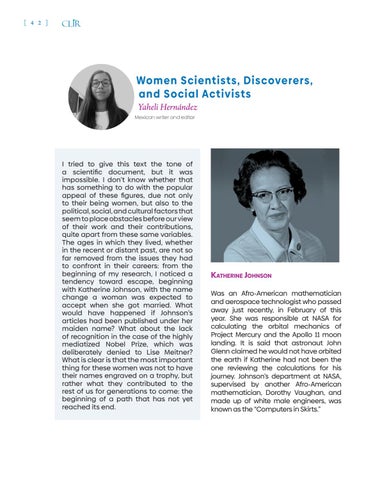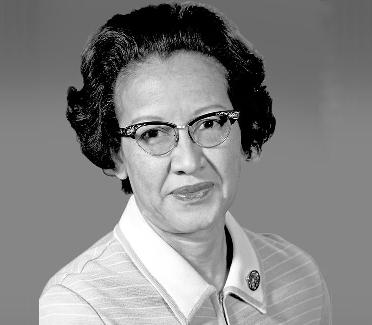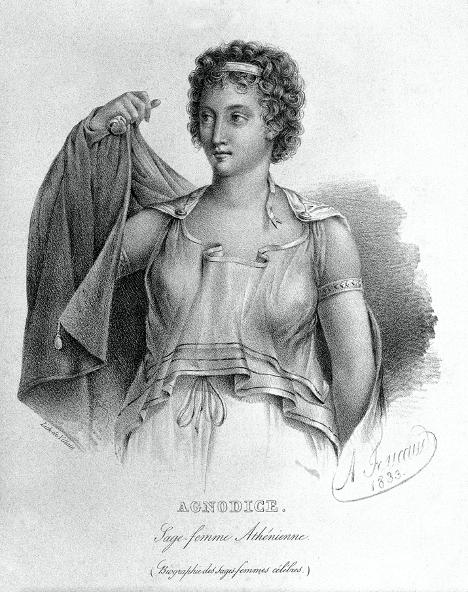[ 4 2 ]
Women Scientists, Discoverers, and Social Activists Yaheli Hernández Mexican writer and editor
I tried to give this text the tone of a scientific document, but it was impossible. I don’t know whether that has something to do with the popular appeal of these figures, due not only to their being women, but also to the political, social, and cultural factors that seem to place obstacles before our view of their work and their contributions, quite apart from these same variables. The ages in which they lived, whether in the recent or distant past, are not so far removed from the issues they had to confront in their careers: from the beginning of my research, I noticed a tendency toward escape, beginning with Katherine Johnson, with the name change a woman was expected to accept when she got married. What would have happened if Johnson’s articles had been published under her maiden name? What about the lack of recognition in the case of the highly mediatized Nobel Prize, which was deliberately denied to Lise Meitner? What is clear is that the most important thing for these women was not to have their names engraved on a trophy, but rather what they contributed to the rest of us for generations to come: the beginning of a path that has not yet reached its end.
K atherine Johnson Was an Afro-American mathematician and aerospace technologist who passed away just recently, in February of this year. She was responsible at NASA for calculating the orbital mechanics of Project Mercury and the Apollo 11 moon landing. It is said that astronaut John Glenn claimed he would not have orbited the earth if Katherine had not been the one reviewing the calculations for his journey. Johnson’s department at NASA, supervised by another Afro-American mathematician, Dorothy Vaughan, and made up of white male engineers, was known as the “Computers in Skirts.”




















